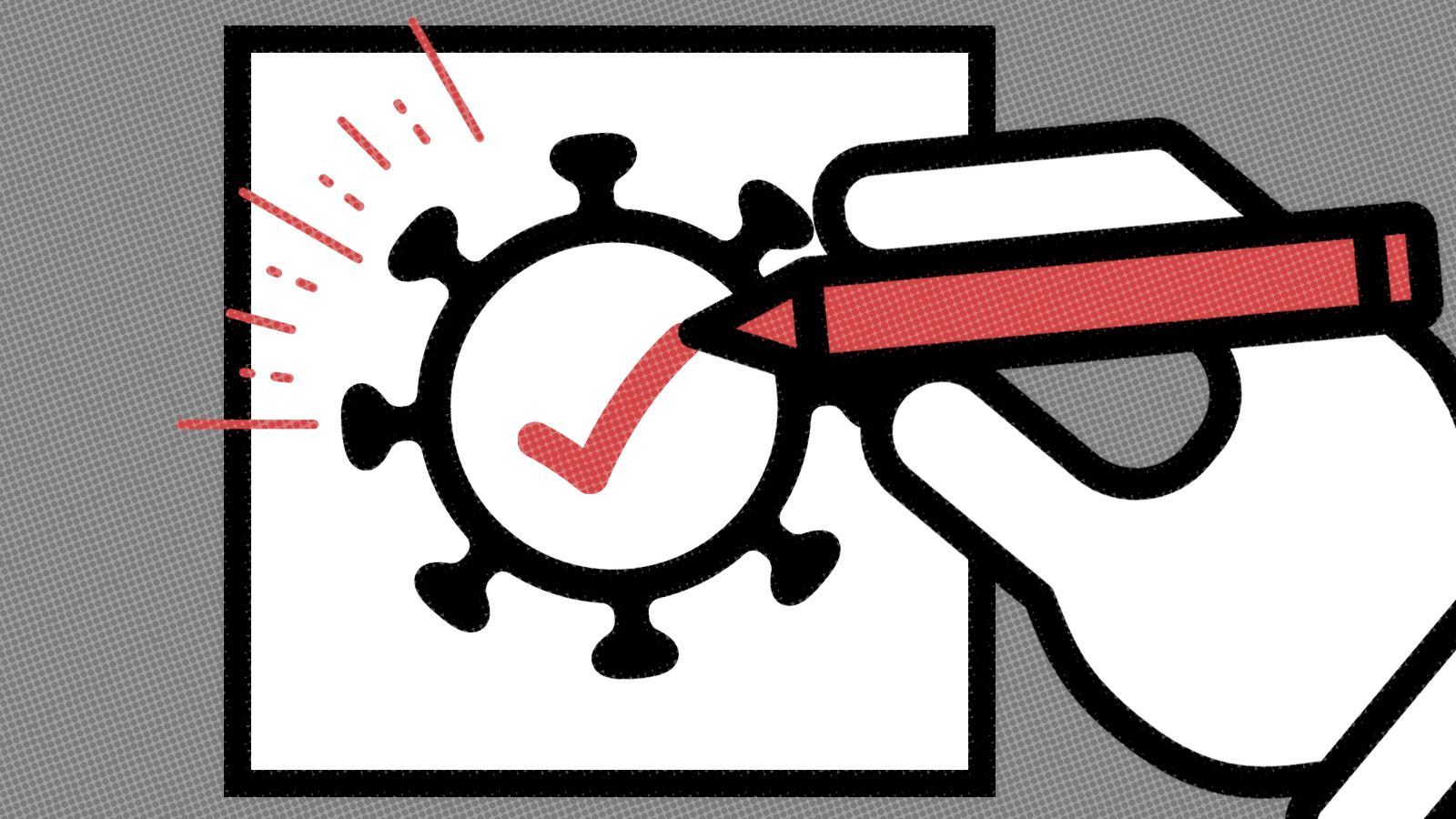The COVID surge is a choice


A free daily email with the biggest news stories of the day – and the best features from TheWeek.com
You are now subscribed
Your newsletter sign-up was successful
Is decline a choice? Many conservatives think so. During the early days of Barack Obama's presidency, they adopted the phrase "Decline is a choice" to signal that (despite the rise of China and our national stumbles in Iraq) America isn't inevitably destined to fall from its spot as the world's lone superpower. "Decline — or continued ascendancy — is in our hands," the late Charles Krauthammer said in a 2009 speech. More recently, writers like Ben Shapiro and Jonah Goldberg have revived the phrase to excoriate President Biden and his decision to withdraw American troops from Afghanistan.
They should turn that logic inward, toward America's handling of COVID.
Take a look at just a few headlines and charts from recent days. The United States is experiencing more than 1,500 deaths a day from the coronavirus, and just surpassed 40 million known COVID cases overall — with four million of those cases added to the toll in just the last month. Despite a head start in producing and distributing COVID vaccines, America now has a lower vaccination rate and higher death rate than most of the rest of the developed world.
The Week
Escape your echo chamber. Get the facts behind the news, plus analysis from multiple perspectives.

Sign up for The Week's Free Newsletters
From our morning news briefing to a weekly Good News Newsletter, get the best of The Week delivered directly to your inbox.
From our morning news briefing to a weekly Good News Newsletter, get the best of The Week delivered directly to your inbox.
In the short term, these numbers mean that America is indeed No. 1, but only in the worst ways imaginable. Over the long term, they may also signal a noticeable diminishment of the country's capabilities — the economy is faltering, schools are closing again, and hospitals are under terrible strain. On Tuesday in Idaho, for example, officials announced that they are imposing "crisis standards of care" — a euphemism for health-care rationing, brought about by high patient counts and a shortage of available staff. We may be feeling the effects of these unnecessary disruptions for years to come. Certainly, none of these developments will strengthen the country.
It's old hat to point out that the pandemic in the United States is now driven largely by unvaccinated people, but it's true and it bears repeating over and again. The Delta variant surely has a say, but it matters that many of the conservative movement's brightest lights have spent the last few months undermining vaccines and mask-wearing while promoting unproven "cures." If decline is indeed a choice, it will be brought about by millions of individual decisions not to do the right thing. It's not too late to start choosing wisely.
A free daily email with the biggest news stories of the day – and the best features from TheWeek.com
Joel Mathis is a writer with 30 years of newspaper and online journalism experience. His work also regularly appears in National Geographic and The Kansas City Star. His awards include best online commentary at the Online News Association and (twice) at the City and Regional Magazine Association.
